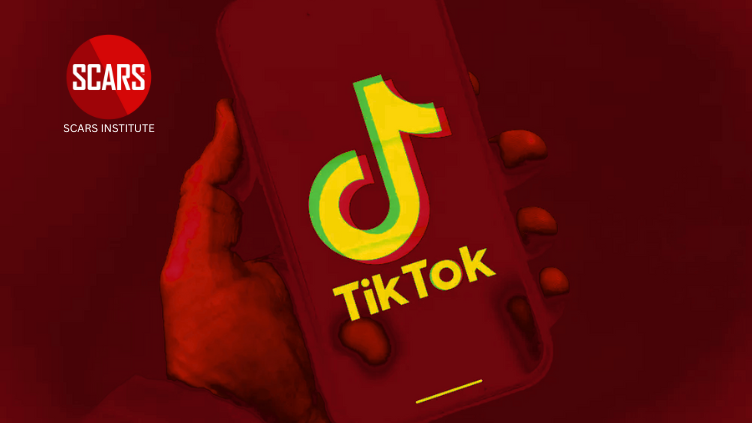The U.S. FTC Goes After TikTok For Violating Children’s Privacy
TikTok has Repeatedly Disregarded U.S. Law on Protecting Children!
Primary Category with link to search
Authors:
• SCARS Editorial Team – Society of Citizens Against Relationship Scams Inc.
• U.S. FTC – Federal Trade Commission
About This Article
The FTC and DOJ have filed a lawsuit against TikTok and its parent company ByteDance, accusing them of violating the Children’s Online Privacy Protection Act (COPPA) and a 2019 FTC consent order.
The lawsuit alleges that TikTok failed to notify and obtain parental consent before collecting personal information from children under 13.
Despite knowing millions of children used the platform, TikTok allegedly continued to collect and use their data unlawfully, including through “age unknown” accounts bypassing age gates.
The complaint highlights TikTok’s practices of making it difficult for parents to delete their children’s data and retaining underage accounts without parental consent.
The FTC seeks civil penalties and a permanent injunction to prevent future violations.
STOP USING TIKTOK NOW
IT IS ADDICTIVE DESTRUCTIVE AND UNSAFE FOR CHILDREN AND TEENS

FTC Investigation Leads to Lawsuit Against TikTok and ByteDance for Flagrantly Violating Children’s Privacy Law
The FTC complaint alleges TikTok, parent company ByteDance, and affiliates failed to comply with COPPA despite knowing that millions of children were using the platform
On behalf of the Federal Trade Commission, the Department of Justice sued video-sharing platform TikTok, its parent company ByteDance, as well as its affiliated companies, with flagrantly violating a children’s privacy law—the Children’s Online Privacy Protection Act—and also alleged they infringed an existing FTC 2019 consent order against TikTok for violating COPPA.
The complaint alleges defendants failed to comply with the COPPA requirement to notify and obtain parental consent before collecting and using personal information from children under the age of 13.
“TikTok knowingly and repeatedly violated kids’ privacy, threatening the safety of millions of children across the country,” said FTC Chair Lina M. Khan. “The FTC will continue to use the full scope of its authorities to protect children online—especially as firms deploy increasingly sophisticated digital tools to surveil kids and profit from their data.”
“The Justice Department is committed to upholding parents’ ability to protect their children’s privacy,” said Principal Deputy Assistant Attorney General Brian Boynton. “This action is necessary to prevent the defendants, who are repeat offenders and operate on a massive scale, from collecting and using young children’s private information without any parental consent or control.”
ByteDance and its related companies allegedly were aware of the need to comply with the COPPA Rule and the 2019 consent order and knew about TikTok’s compliance failures that put children’s data and privacy at risk. Instead of complying, ByteDance and TikTok spent years knowingly allowing millions of children under 13 on their platform designated for users 13 years and older in violation of COPPA, according to the complaint.
As of 2020, TikTok had a policy of maintaining accounts of children that it knew were under 13 unless the child made an explicit admission of age and other rigid conditions were met, according to the complaint. TikTok human reviewers allegedly spent an average of only five to seven seconds reviewing each account to make their determination of whether the account belonged to a child.
The company allegedly continued to collect personal data from these underage users, including data that enabled TikTok to target advertising to them—without notifying their parents and obtaining their consent as required by the COPPA Rule. Even after it reportedly changed its policy not to require an explicit admission of age, TikTok still continued to unlawfully maintain and use personal information of children, according to the complaint.
TikTok’s practices prompted its own employees to raise concerns. As alleged, after failing to delete numerous underage child accounts, one compliance employee noted, “We can get in trouble … because of COPPA.”
In addition, the complaint alleges that TikTok built back doors into its platform that allowed children to bypass the age gate aimed at screening children under 13. TikTok allegedly allowed children to create accounts without having to provide their age or obtain parental consent to use TikTok by using credentials from third-party services like Google and Instagram. TikTok classified such accounts as “age unknown” accounts, which grew to millions of accounts, according to the complaint.
Even when it directed children to use the TikTok Kids Mode service, a more protected version for kids, the complaint charges that TikTok collected and used their personal information in violation of COPPA. It also alleges that TikTok collected numerous categories of information and far more data than it needed, such as information about children’s activities on the app and multiple types of persistent identifiers, which it used to build profiles on children, while failing to notify parents about the full extent of its data collection and use practices. For example, TikTok shared this personal data with third parties such as Facebook and AppsFlyer to persuade existing Kids Mode users to use the service more after their use had declined or ceased, through a practice TikTok called “retargeting less active users,” according to the complaint.
TikTok also allegedly made it difficult for parents to request that their child’s accounts be deleted. When parents managed to navigate the multiple steps required to submit a deletion request, TikTok often failed to comply with those requests. TikTok also imposed unnecessary and duplicative hurdles for parents seeking to have their children’s data deleted. That practice allegedly continued even after the executive responsible for child safety issues told TikTok’s then-CEO, “we already have all the info that’s needed” to delete a child’s data when a parent requests it, yet TikTok would not delete it unless the parent fills out a second, duplicative form. If the parent did not do that, the executive allegedly added, “then we have actual knowledge of underage user[s] and took no action!”
The complaint also claimed that TikTok began violating the terms of the 2019 FTC order shortly after it went into effect. Two TikTok entities (previously Musical.ly and Musical.ly Inc., which ByteDance acquired in 2017 and renamed) agreed to the terms of the order to settle allegations that they violated the COPPA Rule by unlawfully collecting personal information from children under the age of 13.
Additionally, the complaint alleges that TikTok failed to:
- notify parents about all of the personal data they were collecting from children;
- obtain parental consent for the collection and use of that data;
- limit the collection, use, and disclosure of children’s personal information; and
- delete children’s personal information when requested by parents or when it was no longer needed.
The complaint asks the court to impose civil penalties against ByteDance and TikTok and to enter a permanent injunction against them to prevent future violations of COPPA. The FTC Act allows civil penalties up to $51,744 per violation, per day.
The Commission voted 3-0-2 to refer the complaint to the Department of Justice. Commissioners Melissa Holyoak and Andrew N. Ferguson were recused from participating. The complaint was filed in the U.S. District Court for the Central District of California.
NOTE: The Commission files a complaint when it has “reason to believe” that the named defendants are violating or are about to violate the law and it appears to the Commission that a proceeding is in the public interest. The case will be decided by the court.
The United States is represented in this action by Assistant Directors Rachael L. Doud and Zachary A. Dietert, and Trial Attorneys Ben Cornfeld and Marcus P. Smith, of the Civil Division’s Consumer Protection Branch. Jonathan W. Ware, Iris Micklavzina, Sarah Choi and Michael Sherling represent the FTC’s Bureau of Consumer Protection.
Learn More:
Learn More About Family Safety At: www.ScamVictimsSupport.org
Please Rate This Article
Please Leave Us Your Comment
Also, tell us of any topics we might have missed.
Thank you for your comment. You may receive an email to follow up. We never share your data with marketers.
-/ 30 /-
What do you think about this?
Please share your thoughts in a comment above!
-/ 30 /-
What do you think about this?
Please share your thoughts in a comment above!
ARTICLE RATING
TABLE OF CONTENTS
META
CATEGORIES
MOST POPULAR COMMENTED ARTICLES
POPULAR ARTICLES
U.S. & Canada Suicide Lifeline 988
![NavyLogo@4x-81[1]](https://scamsnow.com/wp-content/uploads/2025/04/NavyLogo@4x-811.png)
WHAT PEOPLE ARE TALKING ABOUT
LATEST SITE COMMENTS
See Comments for this Article at the Bottom of the Page
on Vulnerability to Scams Caused by Past Relationships is Like a River Running through Your Life Cutting Channels – 2025: “My big take away from this article is that there are many layers to my vulnerability. Yes, losing my Mom…” May 8, 11:43
on Hate for Scammers and Criminals Feels So Good But is So Bad for Scam Victims – 2025: “As stated here it feels like it should be justified – to hate them. I never did feel that way,…” May 6, 17:32
on Scam Victims Suppressing Trauma Or Avoiding Recovery And Healing 2024: “This is a great article that will, hopefully, help when I am avoiding facing my emotions/triggers. Recognizing the signs and…” May 6, 16:47
on SCARS 5 Coping Techniques For Traumatized Scam Victims – 2023: “One of the best ways of coping for me has been to reconnect with my friends. I self-isolated for months…” May 6, 16:07
on Trauma Recollection/Traumatic Flashbacks And Scam Victim PTSD – Recovery Psychology – 2023: “I don’t feel like my trauma can be described as PTSD. The affects after the scam ended were severe anxiety,…” May 6, 15:55
on Selective Amnesia and Scam Victim Psychological Trauma 2023: “This was a very interesting article to me. I have not experienced selective amnesia in relation to the scam. However,…” May 6, 15:39
on Psychological Triggers/Emotional Triggers – What They Are And How They Work – 2023/2024: “Not long after my scam ended, I needed to go to the grocery store. It never crossed my mind that…” May 6, 14:48
on Learning And The Challenges That A Scam Victim Faces From Trauma And Related Cognitive Effects – 2024: “My cognitive impairment was bad right after my scam. However, I have now noticed that it was especially bad during…” May 6, 14:23
on Hate for Scammers and Criminals Feels So Good But is So Bad for Scam Victims – 2025: “This is all true and valid. I had to forgive myself first for trusting my abuser because he hurt my…” May 6, 10:08
on Nirvana and the Path to Letting Go of Suffering – 2025: “En mi experiencia podría describir el nirvana en mi recuperación como ese estado de paz profunda y liberación emocional que…” May 5, 18:58
on The Prodigal Son or Daughter – Returning ‘Home’ After the Scam – 2025: “It’s true that the judgment of others does not define my path but if after “coming home” those closest to…” May 5, 13:21
on Beginning Again and Scam Victim Recovery -2025: “Taking action is the first step to recovery and I am doing that and becoming a newer stronger version of…” May 5, 09:53
on Beginning Again and Scam Victim Recovery -2025: “In order not to let this deception define me, since its discovery I have been ACTING.” May 5, 07:22
on The Butterfly Effect And Scam Victims – 2024: “Very good and interesting analogy to the Butterfly Effect and how it pertains to scams. In my crime I can…” May 4, 14:51
on Faith And Why It Matters In Scam Victim Recovery – 2024: “This is a good article giving examples of the difference between faith in oneself and one’s core values – to…” May 4, 13:37
on Reclaiming Your Worth: A Scam Survivor’s Guide to Navigating Your Worthiness After a Scam – 2023: “As an individual I process my emotions slowly whether it is shock, trauma, anger, disbelief. In the cycle of recovery…” May 4, 12:54
on The Stain that Never Goes Away After a Romance Scam for Scam Victims – 2025: “Thank you for sharing this important step on recovery” May 4, 12:09
on Metanoia – The Transformation for Traumatized Scam Victims – 2025: “Excelente articulo!!!… Después de superar la estafa podría describir la metanoia en mi propia experiancia como un renacimiento interior, una…” May 4, 00:24
on Philosophy of Life Planning – From Chaos to Order and the Scam Victim Recovery Path Forward – 2025: “Seeking justice is, unfortunately, not justice. Anger and revenge is not justice either. Recovery is justice. The only justice for…” May 3, 21:16
Important Information for New Scam Victims
Please visit www.ScamVictimsSupport.org – a SCARS Website for New Scam Victims & Sextortion Victims
SCARS Institute now offers a free recovery program at www.SCARSeducation.org
Please visit www.ScamPsychology.org – to more fully understand the psychological concepts involved in scams and scam victim recovery
If you are looking for local trauma counselors, please visit counseling.AgainstScams.org
If you need to speak with someone now, you can dial 988 or find phone numbers for crisis hotlines all around the world here: www.opencounseling.com/suicide-hotlines
Statement About Victim Blaming
Some of our articles discuss various aspects of victims. This is both about better understanding victims (the science of victimology) and their behaviors and psychology. This helps us to educate victims/survivors about why these crimes happened and not to blame themselves, better develop recovery programs, and help victims avoid scams in the future. At times, this may sound like blaming the victim, but it does not blame scam victims; we are simply explaining the hows and whys of the experience victims have.
These articles, about the Psychology of Scams or Victim Psychology – meaning that all humans have psychological or cognitive characteristics in common that can either be exploited or work against us – help us all to understand the unique challenges victims face before, during, and after scams, fraud, or cybercrimes. These sometimes talk about some of the vulnerabilities the scammers exploit. Victims rarely have control of them or are even aware of them, until something like a scam happens, and then they can learn how their mind works and how to overcome these mechanisms.
Articles like these help victims and others understand these processes and how to help prevent them from being exploited again or to help them recover more easily by understanding their post-scam behaviors. Learn more about the Psychology of Scams at www.ScamPsychology.org
SCARS INSTITUTE RESOURCES:
IF YOU HAVE BEEN VICTIMIZED BY A SCAM OR CYBERCRIME
♦ If you are a victim of scams, go to www.ScamVictimsSupport.org for real knowledge and help
♦ Enroll in SCARS Scam Survivor’s School now at www.SCARSeducation.org
♦ To report criminals, visit https://reporting.AgainstScams.org – we will NEVER give your data to money recovery companies like some do!
♦ Sign up for our free support & recovery help by https://support.AgainstScams.org
♦ Join our WhatsApp Chat Group at: https://chat.whatsapp.com/BPDSYlkdHBbDBg8gfTGb02
♦ Follow us on X: https://x.com/RomanceScamsNow
♦ Follow us and find our podcasts, webinars, and helpful videos on YouTube: https://www.youtube.com/@RomancescamsNowcom
♦ SCARS Institute Songs for Victim-Survivors: https://www.youtube.com/playlist…
♦ See SCARS Institute Scam Victim Self-Help Books at https://shop.AgainstScams.org
♦ Learn about the Psychology of Scams at www.ScamPsychology.org
♦ Dig deeper into the reality of scams, fraud, and cybercrime at www.ScamsNOW.com and www.RomanceScamsNOW.com
♦ Scam Survivor’s Stories: www.ScamSurvivorStories.org
♦ For Scam Victim Advocates visit www.ScamVictimsAdvocates.org
♦ See more scammer photos on www.ScammerPhotos.com
You can also find the SCARS Institute on Facebook, Instagram, X, LinkedIn, and TruthSocial
Psychology Disclaimer:
All articles about psychology and the human brain on this website are for information & education only
The information provided in this and other SCARS articles are intended for educational and self-help purposes only and should not be construed as a substitute for professional therapy or counseling.
Note about Mindfulness: Mindfulness practices have the potential to create psychological distress for some individuals. Please consult a mental health professional or experienced meditation instructor for guidance should you encounter difficulties.
While any self-help techniques outlined herein may be beneficial for scam victims seeking to recover from their experience and move towards recovery, it is important to consult with a qualified mental health professional before initiating any course of action. Each individual’s experience and needs are unique, and what works for one person may not be suitable for another.
Additionally, any approach may not be appropriate for individuals with certain pre-existing mental health conditions or trauma histories. It is advisable to seek guidance from a licensed therapist or counselor who can provide personalized support, guidance, and treatment tailored to your specific needs.
If you are experiencing significant distress or emotional difficulties related to a scam or other traumatic event, please consult your doctor or mental health provider for appropriate care and support.
Also read our SCARS Institute Statement about Professional Care for Scam Victims – click here
If you are in crisis, feeling desperate, or in despair, please call 988 or your local crisis hotline.
More ScamsNOW.com Articles
A Question of Trust
At the SCARS Institute, we invite you to do your own research on the topics we speak about and publish. Our team investigates the subject being discussed, especially when it comes to understanding the scam victims-survivors’ experience. You can do Google searches, but in many cases, you will have to wade through scientific papers and studies. However, remember that biases and perspectives matter and influence the outcome. Regardless, we encourage you to explore these topics as thoroughly as you can for your own awareness.















![scars-institute[1]](https://scamsnow.com/wp-content/uploads/2025/04/scars-institute1.png)
![niprc1.png1_-150×1501-1[1]](https://scamsnow.com/wp-content/uploads/2025/04/niprc1.png1_-150x1501-11.webp)

Leave a Reply